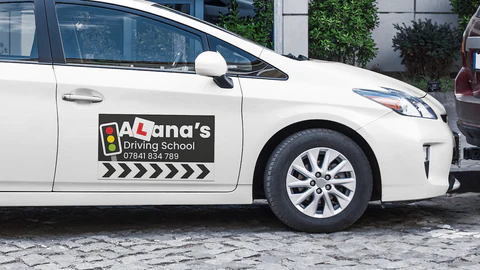It can be intimidating to buy a used vehicle, especially if you are unfamiliar with the automotive industry. Here are seven things you should avoid when purchasing a used vehicle to help you better navigate the process. These pitfalls can save you not only money, but also headaches in the future.
1. Skip a thorough inspection
Why it’s important
It is important to conduct a thorough inspection in order to identify any hidden problems that are not immediately apparent. Even if a car seems to be in great condition, hidden issues can lead to expensive repairs.
What to do
- Hire Professional: Hire a professional mechanic to perform a thorough inspection. They can spot problems that an untrained eye may miss.
- Check the Vehicle for Corrosion and Rust: Inspect the wheel wells and undercarriage.
- Test drive: Drive the car in different conditions. Listen for strange noises, and pay attention to the vehicle’s handling.
2. Ignoring vehicle history reports
Why it’s important
A vehicle history report contains vital information on the past of the car, such as any accidents, title problems, and previous owner details. If you ignore this, it could lead to a vehicle with a bad history.
What to do
- Get a Report : Use services such as Carfax or AutoCheck for a detailed history report on your vehicle.
- Look for Red Flags : Check for signs such as odometer rolls back, salvage titles and multiple ownership changes in a short time.
- Verify the Mileage: Check the mileage in the report against the current reading on the odometer.
3. Overlooking financing options
Why it’s important
A good deal on financing is just as important as choosing the right vehicle. A car’s cost can be significantly increased by poor financing terms.
What to do
- Compare your options: Compare the financing options available from different lenders including banks, credit Unions, and online lenders.
- Pre Approval : Get pre approved for a loan in order to better understand your budget. This will also help you strengthen your negotiation position.
- Read all the fine print: Review the loan terms carefully, including interest rates, monthly payments and any other fees.
4. Do not negotiate the price
Why it’s important
Negotiating can save you money. Most sellers price their cars to accommodate some haggling.
What to do
- Research Market Price: Use sources like Kelley Blue Book and Edmunds to determine a car’s fair market value.
- Be Prepared to Walk Away : Be prepared to walk away if the seller refuses to match your price.
- Use leverage: Highlight any defects or repairs that are needed to get a lower price.
5. Ignoring total ownership costs
Why it’s important
The cost of ownership is not just the initial price of the car. Your budget can be affected by maintenance, insurance, fuel and depreciation.
What to do
- Calculate Expenses : Take into account fuel efficiency, insurance rates and possible maintenance costs.
- Get Insurance Quotes : Compare quotes from different insurance companies to find out how much you will pay.
- Budget for Repairs : Plan for possible repairs, particularly if your car is old or has a high mileage.
6. Failure to verify ownership and title status
Why it’s important
The purchase of a vehicle without checking the status of its title can result in legal problems and financial losses. It is important to verify that the seller owns the vehicle and that it has a clear title.
What to do
- Verify the Title: Make sure the title is registered in the name of the seller and is free of any liens.
- Beware Salvage Titles: Be careful of cars with salvage titles as they are declared total losses by insurers.
- Get A Bill Of Sale: Have a signed invoice that contains the price of the vehicle, the VIN and the names and addresses of the buyer and seller.
7. Ignoring Test Drives
Why it’s important
Test drives are a crucial step to assessing the condition of a car. You can test the car’s performance, and find out if there are any hidden problems.
What to do
- Test in Different Conditions: Drive your car on the highway, on city streets and at stop-and-go traffic.
- Listen and feel: Pay close attention to any strange sounds, vibrations or smells. Test brakes, steering and acceleration.
- Comfortability and Usability :Ensure the car is comfortable, and that all controls and features are working correctly.
Conclusion
When buying a used vehicle, you need to pay attention to every detail. Avoiding these seven mistakes will help you make an informed decision, and get a good vehicle at a fair cost. Never skip the test-drive. Always do a thorough inspection. Get a report on the vehicle’s history. Explore financing options. Negotiate the price. These steps will give you the confidence to navigate the used-car market.
Additional Tips
Create a relationship with the seller ?
A good relationship with the seller will increase transparency and honesty in the transaction. Ask about the history of the car, why it is being sold, and what it’s been maintained with.
Understanding Your Needs ?
Clarify what you want in a car. Before you begin shopping, make a list with the features that are a must and those that are not. You will be able to stay focused and prevent impulse purchases.
Considerations Legal and Environmental ?
Know the legal and emission standards for used vehicles in your area. There are some regions that have very strict rules and regulations. This could affect your choice.
Staying informed and vigilant will help you avoid the common pitfalls, and find a car that fits your budget and needs. Enjoy your car-hunting!








